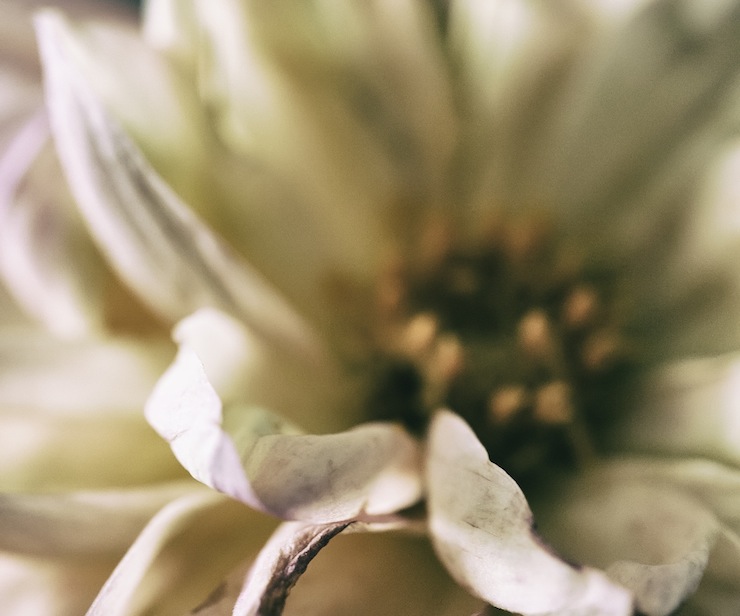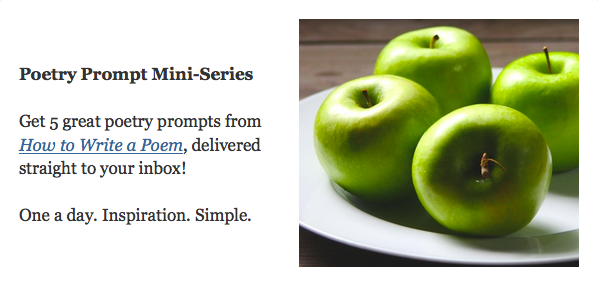When poet Marie Ponsot suffered a stroke at the age of 89, she lost all of her language. This voracious reader and exquisite writer—this multilingual poet’s poet for whom the play of language was as easy and familiar as claiming the syllables of her own name—found herself bereft of the one dependable friend we hope to have until life’s end.
But not for long.
As she lay, physically inert, in her hospital bed, she made multiple mental trips to the attic of her intellect and rummaged for words. At first none would come. Ponsot described herself trying to recover “the earliest thing I ever knew by heart” (New York Times, June 25, 2010). And so she attempted to recite, not a modern poem, but the Lord’s Prayer, the foundation of her spiritual and, as it turns out, her linguistic formation.
But the words refused to rise to her lips. Having failed to open that box of English language memory, she dusted off another, labeled “French, ” and tried it. Previously married to a Frenchman and having lived in France for years, Ponsot had been comfortable in that tongue, had taken it on like a second skin. She began well—Notre Pere qui—but then French, too, failed her.
Near panic, half convinced that she would lie wordless for the remainder of her days, Ponsot did something extraordinary—leaving the attic of mind, she descended into the depths of her heart. It was then she discovered what was written there. She envisioned a page from the Roman Missal she had owned as a young child, and suddenly the words inscribed on the page arrived: the Pater Noster, the Latin version of the prayer she had once learned by heart. Miraculously, her tongue remembered every syllable of the prayer—and not only in Latin, but in English, too.
Language, once again, belonged to her.
In the days, weeks, and months that followed, Marie Ponsot recovered her powers of speech, as well as her ability to write poetry, so this terrifying tale takes the happiest of turns. Here I must confess (for I, like Ponsot, am a cradle Catholic)—my retelling of the story contains fancy, as well as fact—the images of the fusty attic and musty boxes, of the basement of the heart, mine own.
To know something by heart is to know it reliably, unfailingly—to know it more deeply and intimately than what we know by brain. It is inscribed there, literally written—and in indelible ink—by our memory and our mind.
The heart is our notebook, our diary, our treasury, our breviary—an iron-clad safe full of wisdom and play. It is our repository against our extremity. Be careful to put something here—the heart might say—for you will need it some day.
Photo by Gemma Stiles, Creative Commons, via Flickr. Post by Angela Alaimo O’Donnell, author of Saint Sinatra and Other Poems
___________
Click to get FREE 5-Prompt Mini-Series
- Re-Inventing the Ode - March 19, 2014
- Poetry: Mirroring the Unseen - June 26, 2013
- Haiku: Pierced by Beauty - December 19, 2012


Deborah Henry says
This is fantastic and much needed. Many, many thanks. I have just returned from Florida where my uncle-in-law suffered a massive stroke. There is a good chance that he and my aunt have memorized many heartfelt prayers. I will pass along this fortuitous and uplifting post to help them along.
Maureen Doallas says
Beautifully written post on this month’s theme.
I liken poetry taken to heart to music, which tends to be the last thing we lose, according to brain research at MIT.
Mike Dodaro says
Ciao, Angela. Your writing always conveys hope for recovery in what we’re in danger of losing or have lost. I am going to give copies of your books, “Waiting for Ecstasy” and “Saint Sinatra” to my salad-days sweetheart who now, at sixty one, has undergone surgery to remove a very aggressive sarcoma. She is also a cradle Catholic.
Here’s part of message I just received from her:
“The doc said, ‘I can’t believe, Mary, that you came down with something I’ve only seen once in my 30 years of work.’ He’s seen two other tumors like mine, but they grew inside of the uterus; mine was sort of a free-range thing. He was happy with the surgery, happy with my recovery and the incision. He did say that it would be optimistic to think that it wouldn’t come back.”
If anybody on this thread is inclined to pray for strangers, here is an opportunity.
Angela Alaimo O'Donnell says
Thanks, Everyone, for your good words. Maureen, you are such a generous reader!
Prayers are most definitely in order for Marvellous Mary, Mike. She has mine–in addition to my poems. (Thanks so much for sharing the latter with her!)
Prayers and good thoughts for your Uncle, as well, Deborah. Yes, Marie’s story is enormously hopeful. I wrote to her a few months after her stroke, and she called me on the phone to address some of my questions. After I picked myself up off the floor (I was that surprised!), she shared with me the technique she used to teach herself to write poems again. She would actively encourage herself as she wrote, talking to herself the whole time–“Now I’m writing a word. But that’s not the one I want, so I”m writing another one. Yes, that’s it–good job!” Obviously, this took enormous patience and courage. Here’s a woman with Heart!
Donna says
Angela, this is beautiful and reminds me of my own mother who couldn’t sketch after she had a stroke. She thought she’d never be able to paint again without the preliminary sketch. She found, however, that her paintings were even more beautiful when she dove right in. I’ve been fascintated by that and think, after reading this piece, maybe it had something to do with painting from her heart and not needing pencil lines to get her started anymore. She thought she needed them, but they were no longer an option. It was either stop painting, or dig deeper. She dug. I guess she ended up in her heart. No pencils or erasers required.
Kelly Greer says
Oh goodness, how well I know this, knowing by heart. Eleven years ago I had brain surgery to remove a brain tumor. It was a very traumatic, overwhelming and frightening journey to recovery from an acquired brain injury. For days, weeks, and even months on end, I could not think. But I could recall the words of God that had been hidden in my heart. His words written upon my heart would defend me, hold me, comfort me, guide me, rescue me and give me hope during the long dark journey of living with a severely damaged mind and loss of memory. I must learn more about Marie Ponsot. Thank you for sharing her with us.
Callie Feyen says
I love a story that contains fancy and fact, and this one is an absolute treasure. Thank you.